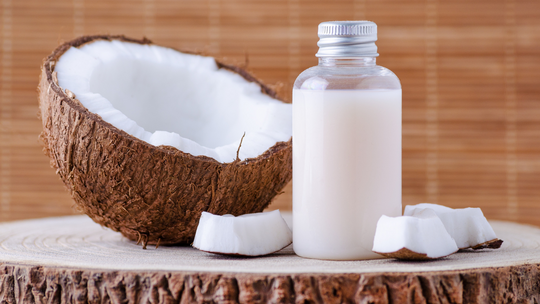5 Tips for Giving Dogs Coconut Milk
Posted on February 20 2024,

Enhancing Canine Nutrition: 5 Tips for Safely Introducing Coconut Milk to Your Dog's Diet
As pet owners become increasingly conscious of their furry friends' nutrition, alternative food choices are gaining popularity. One such option is coconut milk, a tasty and nutritious addition to your dog's diet. However, it's essential to introduce new foods cautiously to prevent any adverse reactions. In this blog post, we'll explore five tips to safely incorporate coconut milk into your dog's meals.
-
Start with Small Quantities: Like humans, dogs can have different reactions to new foods. To gauge your dog's tolerance and preference for coconut milk, start by offering small amounts. A teaspoon or two mixed with their regular food is an excellent starting point. Observe your dog for any signs of allergies or digestive issues before gradually increasing the amount.
-
Choose Unsweetened and Unflavored Varieties: When selecting coconut milk for your dog, opt for unsweetened and unflavored varieties. Many commercial coconut milk products contain added sugars, artificial flavors, and preservatives that may be harmful to your pet. Look for natural, pure coconut milk without any additives, as this ensures your dog receives the maximum nutritional benefits without unnecessary additives.
-
Monitor for Allergies and Sensitivities: Before incorporating coconut milk into your dog's regular diet, it's crucial to monitor for potential allergies or sensitivities. Signs of an adverse reaction may include vomiting, diarrhea, itching, or changes in behavior. If you notice any of these symptoms, consult your veterinarian immediately. Some dogs may be more sensitive to new foods, so introducing coconut milk gradually is key.
-
Consider the Fat Content: Coconut milk is rich in healthy fats, which can be beneficial for your dog's coat, skin, and overall health. However, it's important to consider your dog's individual dietary needs. If your dog is prone to obesity or has a medical condition that requires a low-fat diet, consult your veterinarian before incorporating coconut milk. Additionally, portion control is essential to avoid excessive calorie intake.
-
Integrate Coconut Milk into Homemade Treats: A fun and creative way to introduce coconut milk to your dog's diet is by incorporating it into homemade treats. You can make simple frozen treats by mixing coconut milk with dog-friendly fruits like blueberries or strawberries. Freeze the mixture in small molds for a refreshing and nutritious snack. This allows you to control the ingredients and tailor the treats to your dog's preferences.
Incorporating coconut milk into your dog's diet can be a delightful and nutritious experience, but it's crucial to approach it with care. By starting small, choosing the right product, monitoring for allergies, considering fat content, and getting creative with homemade treats, you can ensure a positive and health-enhancing addition to your dog's meals. Always consult your veterinarian if you have any concerns or questions about your dog's diet and nutrition.
